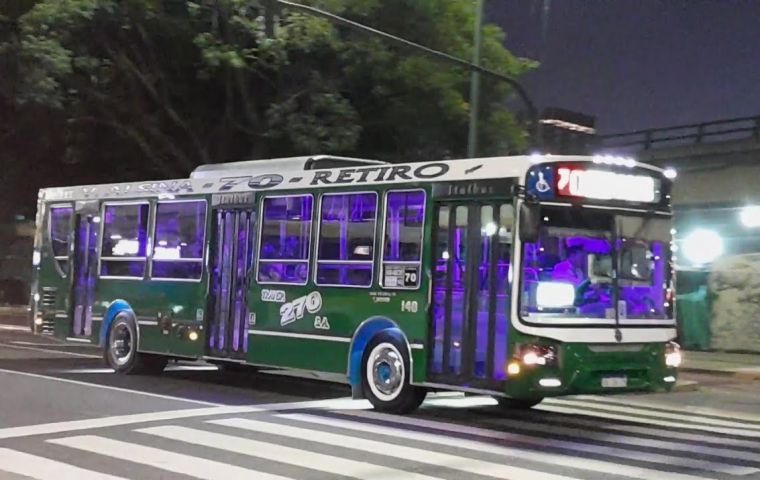MercoPress. South Atlantic News Agency
Buenos Aires City transitioning to CNG or electric bus services
 Existing diesel units will continue to run until they reach their maximum service time
Existing diesel units will continue to run until they reach their maximum service time Beginning January 1, 2027, all new buses incorporated into the Autonomous City of Buenos Aires' (CABA) public transport system must be powered by compressed natural gas (CNG) or electricity. Vehicles running on these alternative fuels will receive higher subsidies to encourage adoption, it was announced. The existing conventional diesel-powered buses currently in service may continue operating until they reach their maximum service time.
This initiative aligns with Buenos Aires' Sustainable Mobility Plan and 2050 Climate Action Plan, which imposes “reducing emissions through the energy transition of transport and distributed generation, the rational and more efficient use of energy, the promotion of the circular economy, and intelligent waste management,” the City Government noted.
The shift will necessitate new infrastructure, including high-power charging stations for electric buses and captive charging stations with specific compression and storage systems for CNG vehicles.
The decision is supported by positive experiences from pilot tests, such as the Urban Electric Bus Mobility (MiniMUBE) program, which showed high public acceptance, reduced noise, and no greenhouse gas emissions.
“Although this innovative service does not yet have definitive results, in this first stage of implementation, there has been positive acceptance by the public, transporting 65,000 passengers in the first month, with a positive assessment of the level of service above 90%, reducing noise levels in the city center and historic district, improving accessibility and connectivity with the rest of the network, without greenhouse gas emissions,” the CABA authorities also pointed out.
In addition, all new units will incorporate Advanced Driver-Assistance Systems (ADAS) to improve road safety by addressing issues like blind spots.




Top Comments
Disclaimer & comment rulesCommenting for this story is now closed.
If you have a Facebook account, become a fan and comment on our Facebook Page!